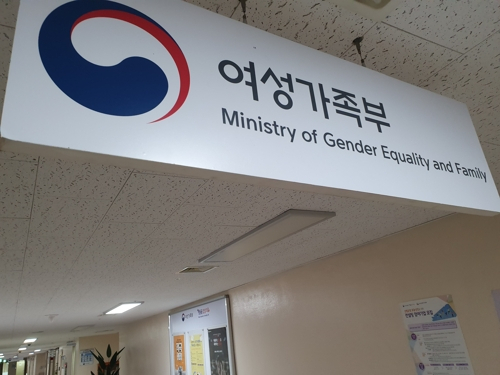 |
Ministry of Gender Equality and Family (The Korea Herald) |
South Korea’s Ministry of Gender Equality and Family has come under fire for withdrawing plans to expand the legal definition of rape to non-consensual sex on the same day it was announced.
The move would have ended the requirement in South Korea for the threat or use of force to be in evidence in order for an act to count as rape.
Park Ji-hyun, who was briefly interim chair of the opposition Democratic Party, said in a Facebook statement Friday, “If nonconsensual sex isn’t rape then I don’t know what is.”
The minor opposition Justice Party said in a Friday statement, “Countries including the UK and Germany have already adopted similar laws punishing nonconsensual sex.”
“These are changes being recommended internationally," it added. "The Yoon administration likes to talk about global standards, so Korea should follow suit.”
According to the ministry’s initial announcement Thursday, the plan was intended to widen the scope of what constitutes rape to non-consensual sex that did not involve the use of force.
The ministry's announcement quickly drew public backlash and objections from ruling People Power Party figures before it was reversed.
The ousted ruling party chair Lee Jun-seok, who is credited as being behind Yoon’s election pledge to abolish the Gender Equality Ministry, reacted with a brief Facebook post which read, "What? Non-consensual sex?”
Another former ruling party chair, Rep. Kweon Seong-dong, said in a statement that the proposed amendment would “divide men and women.”
“Such a law would lead to a risk of false rape claims. It’s extremely difficult to prove consent or nonconsent relying on the claims of one party,” he said.
“Today the ministry once again proved why it needs to be abolished.”
The ministry said in a text message to reporters Thursday afternoon that the previously announced amendment to make other forms of non-consensual sexual acts punishable “is not a policy that is being newly directed by the Yoon Suk Yeol administration.”
“This is a policy task that has been under discussion since 2015 as a part of the gender equality plan that was laid out then,” the ministry said.
The ministry is expected to discuss the plan’s reversal in a press briefing Monday.







![[Today’s K-pop] Blackpink’s Jennie, Lisa invited to Coachella as solo acts](http://res.heraldm.com/phpwas/restmb_idxmake.php?idx=644&simg=/content/image/2024/11/21/20241121050099_0.jpg)